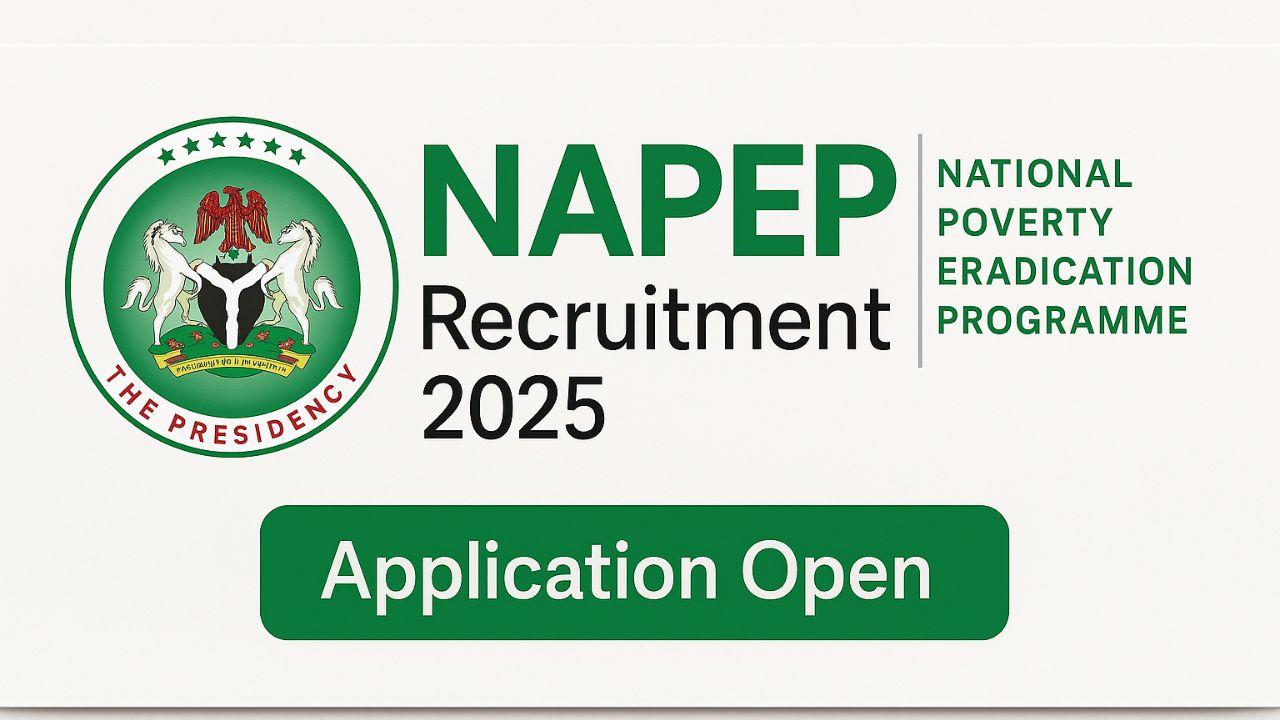A disturbing online scam is making waves in Nigeria. Fraudsters have created a fake website pretending to be the official portal for the National Poverty Eradication Programme (NAPEP). Using well-crafted advertisements and paid promotions, they are duping unsuspecting Nigerians into submitting sensitive personal and financial information. The bait? A fake NAPEP recruitment offer promising ₦100,000 monthly stipends and opportunities for vocational training. Here’s what you need to know to stay safe.
How the NAPEP Scam Works
Scammers are promoting fraudulent recruitment ads for NAPEP in major Nigerian newspapers and across Google search results. Publications like The Nation, Punch, Vanguard, and PremiumTimes have unknowingly hosted ads that appear legitimate at first glance. The ads announce that the National Poverty Eradication Programme is accepting applications for a new round of funding and vocational training, with a deadline of June 30, 2025.
Key Highlights of the Fake NAPEP Scam Ad:
- Promises of up to ₦100,000 monthly stipends.
- Grants for youth vocational training and micro-credit.
- Claims of official affiliation with the Nigerian government.
- Links to a deceptive website: https://www.napep-gov.ng/signup.
Once on the fake site, users are asked to:
- Enter personal information including name, email, and National Identification Number (NIN).
- Pay a so-called “NIN verification fee” of ₦751 using their debit card.
This is the trap. There is no government service that requires payment for NIN verification. Legitimate Nigerian government portals such as those ending in .gov.ng never ask for card details in this manner.
Why People Are Falling for It
The scam is particularly effective because it mimics legitimate government processes and uses official-sounding language. Here are a few reasons why many fall for it:
- Fake domain appears real: The URL (napep-gov.ng) is designed to trick users by resembling a genuine .gov.ng domain.
- Professional-looking design: The site uses the Nigerian coat of arms and typical government website aesthetics.
- Widespread promotion: Paid ads on Google have pushed this scam to the top of search results for keywords like “NAPEP recruitment 2025.”
- Official tone and structure: The announcement reads like a real government press release, complete with eligibility criteria and application steps.
Red Flags to Watch Out For
To avoid falling victim to such scams, be on the lookout for the following warning signs:
- Request for payment: No genuine government programme asks for fees upfront, especially not via card.
- Suspicious domain: Official Nigerian government sites always end in .gov.ng. This scam uses a misleading structure.
- Pressure tactics: Fake deadlines and urgent calls to action are common in scams.
- Too-good-to-be-true offers: ₦100,000 per month with no strings attached? Always be skeptical.
- Lack of verification from official sources: Cross-check with the Ministry of Humanitarian Affairs or official NAPEP channels.
What You Should Do If You’ve Been Targeted
If you or someone you know has interacted with this fake site:
- Do NOT enter your card details.
- Contact your bank immediately to block or monitor suspicious activity.
- Report the website to Nigeria’s National Information Technology Development Agency (NITDA).
- File a report with the Economic and Financial Crimes Commission (EFCC).
- Warn others, especially friends and family who may be less internet-savvy.
Protecting Yourself Online: Practical Tips
- Verify URLs: Always double-check web addresses. Government websites in Nigeria only operate on secure .gov.ng domains.
- Use NIMC’s official channels: For anything involving your National Identification Number, consult only https://nimc.gov.ng.
- Install browser security extensions: Tools like HTTPS Everywhere or antivirus web protection features can warn you about risky sites.
- Search smart: Don’t rely solely on Google ads or top search results. These can be manipulated.
- Educate yourself and others: Share verified information to build awareness in your community.
What Government Agencies Are Doing
So far, there has been limited public response from NAPEP or other government bodies. However, Nigerians are encouraged to remain vigilant and report suspicious activities. This kind of widespread scam can only be dismantled through public awareness and swift action by digital regulators.
Conclusion: Stay Alert, Stay Safe
The fake NAPEP recruitment scam is a serious threat, especially to non-tech-savvy Nigerians eager to access government support. With well-crafted promotions, realistic websites, and misleading promises, the scam is convincing. But with vigilance, awareness, and education, we can stop fraudsters in their tracks.
Remember: No real government programme will ask you to pay for verification. Always verify information with official sources and think twice before entering personal details online.
Call to Action:
If you found this article helpful, please share it with your network. Together, we can reduce the spread of online scams in Nigeria. For verified updates on government programmes, always refer to the official portals or contact NAPEP directly via known government communication channels.
